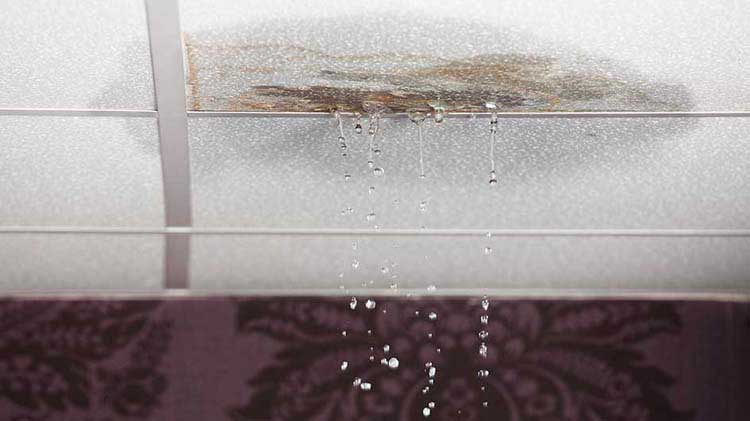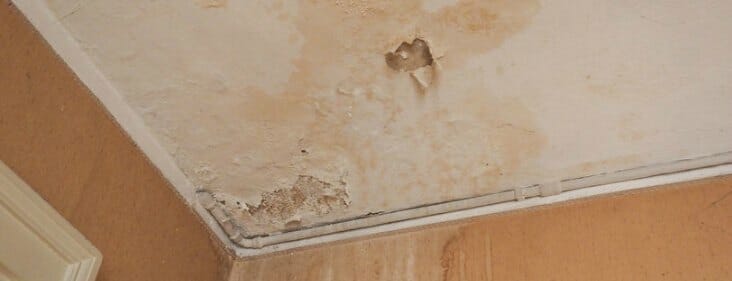Familiarize Yourself With the Six Principal Factors For Water Seepage Within Your Home
Familiarize Yourself With the Six Principal Factors For Water Seepage Within Your Home
Blog Article
We've noticed this great article relating to How to detect water leaks in your home down the page on the web and accepted it made good sense to relate it with you on my blog.

Leakages not just create waste of water but can additionally create unneeded damage to your home and also advertise undesirable natural development. However, water leakages may go undetected because a lot of the pipework in our house is hidden. By recognizing and looking for day-to-day scenarios that trigger leaks, you can secure your house from future leaks and unneeded damage. Today, we will look at 6 leak creates that might be creating your pipes to drip.
Instant temperature changes.
Extreme temperature level modifications in our pipelines can cause them to increase and also contract all of a sudden. This development as well as tightening may cause splits in the pipelines, particularly if the temperature level are below freezing. If you kept an eye on exactly how your plumbing functions, it would be best. The presence of the previously stated conditions regularly suggests a high danger.
Corroded water supply
As time goes by, your plumbing system ages as well as rust such as rust might begin eating away the pipes. This might be the source of staining or bending on your water pipes. This asks for an inspection with your plumber immediately. If our plumbing system is old, consider changing the pipelines considering that they are at a higher danger of deterioration than the more recent models.
Defective Pipeline Joints
The factor at which your pipes attach is regularly the weakest link in the waterline. Pipeline joints can wear away over time, leading to water leakages. However, most of pipeline joints are not easily noticeable. If you have noisy pipes that make ticking or banging sounds, specifically when the warm water is switched on, your pipeline joints are possibly under a lot of stress. It is recommended to have your plumber inspect your system annually.
Encroaching roots
The majority of water leaks begin outside the residence instead than inside it. You could observe damp patches or sinkholes in your backyard, and that may suggest that tree roots are attacking water lines creating water to permeate out.
Poor Water Connectors
At times, a leakage can be caused by loosened hoses and pipes that supply your devices. In instance of a water links leak, you may discover water running straight from the supply line or pools around your home appliances.
Clogged Drains
Obstructed drains could be annoying as well as inconveniencing, yet they can in some cases wind up triggering an overflow resulting in break pipes. Maintain eliminating any kind of materials that might decrease your drains pipes that can block them to stay clear of such inconveniences.
All the above are root causes of leaks but not all water leaks arise from plumbing leakages; some leaks might come from roof covering leaks. All leaks need to be repaired instantly to avoid water damage.
Leakages not only cause waste of water but can also create unneeded damage to your residence and advertise unwanted natural development. By looking and also recognizing for day-to-day scenarios that create leakages, you can safeguard your home from future leakages and also unneeded damages. Today, we will look at six leak triggers that may be causing your pipes to drip.
At times, a leak can be triggered by loosened hose pipes as well as pipes that supply your devices. In situation of a water links leak, you might discover water running straight from the supply line or puddles around your appliances.
Tell-Tale Signs of a Water Leak
The Sound of Running Water
If you’re hearing water running, your first step should be to check your faucets, toilet valves, and outdoor spigots. If everything if status quo, take an exact reading of your water meter and don’t use the water for a few hours. Then, take another meter reading. If there has been no change, that means water is not running (and maybe it’s time to have your hearing checked!). If the reading has changed, however, this indicates that water is indeed flowing and you most likely have a leak.
Wet or Damp Floors
You’re walking across your carpet and suddenly squish—your sock is soaked! The dog doesn’t look guilty and your child swears they didn’t spill anything. That means you’re likely looking at sewer leakage. Now, it’s easy to just soak it up with a towel and call it a day; however, this won’t stop the leak. Ignoring the problem allows moisture to build up, ultimately causing mold or mildew. Not only is this smelly, it can be very toxic and harmful to children, the elderly, pets, and those with weak immune systems. Don’t risk the health of your home and your family—call in a professional to take care of the problem.
Foul Odors
If there’s an unpleasant smell in your home and you can’t locate the source, don’t just light a candle or spray some Febreze. Funky smells are often due to mold and mildew, which spread fast under ideal conditions (optimal temperature and level of humidity). Growth begins within about 24-48 hours, and spores start to colonize in 3-12 days, becoming visible to the eye within about 18 days. If you think the odor is leak-related, get a plumber out as soon as possible to mitigate damage from rapid fungi growth (and rid your home of the foul odor).
Overgrowth in the Lawn
Unless you didn’t fertilize your lawn evenly, a lush patch of grass in a select area of your lawn, or concentrated wet spots, indicate pipe leakage which is acting as a fertilizer. Left untreated, hazardous bacteria in the underground waste will quickly turn into a messy situation, going from lush growth to lawn destruction.
Wall Cracks
Over time, even the littlest of leaks can cause cracks in the foundation of your home and compromise the entire structure. How does it happen? The leak continues hammering away at the same spot in the ground beneath your home, eventually causing it to shift slightly. Now, you’d never feel this shift, but your walls will. This can be a very dangerous situation, so if you’re seeing vertical or diagonal cracking in your walls it’s best to call a plumber right away.
https://www.expresssewer.com/blog/6-telltale-signs-of-a-water-leak-in-your-home

We hope you enjoyed reading our article on How Fast Water Damage Can Ruin Your Home. Thanks for taking a few minutes to read through our article post. In case you appreciated our article if you please be sure to share it. Thank you so much for going through it.
Visit Homepage Report this page